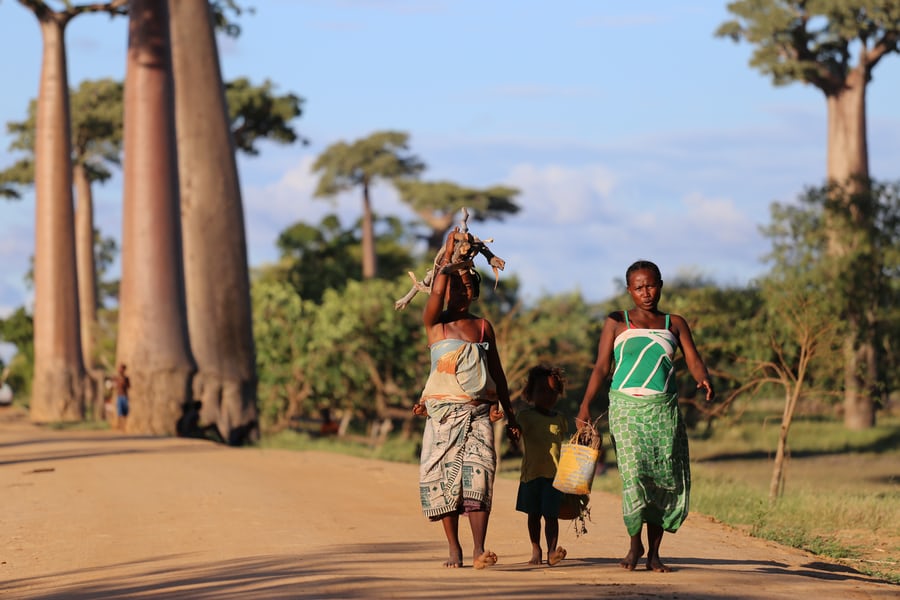Disclaimer: One article is not sufficient to discuss or address the history, complexity and nuance of this Liberian Congo-Country Divide.
In Liberia, there are two major ethno-social categories, Congoe / Congau / Congor / Americo-Liberian and Country/Indigenous/Native – one having dominated the country from its genesis. We will briefly explore the origins, the history, the reality of the divide, and how it affects Liberia today.*
During this pandemic, the world is watching America work through the aftermath of unaddressed and unresolved racial trauma. This triggers many Liberians to also think of one of Liberia’s unresolved and unaddressed issues.
“You damn country ass!” someone says.
Another replies, “You damn Congo rogue!”
Those are chaste iterations of things many Liberians have heard regarding Country and Congau people. In present-day Liberia, this is a subject that is sometimes almost considered a taboo of some sort, some would even call it a “touchy” subject for principled reason. Liberia is a place of unresolved and unreconciled hurt and trauma, we soldier on and “forgive and forget” but the forgetting part is harder than the forgiving, for most.
Historically, before Liberia was as we know it, it was a place of trade. The Grain Coast, the Windward Coast, the Pepper Coast, names that existed before there was a Liberia. The Coastal Bassa called their land “Gb??z???” traded with Dan in their land of “Miampleu,” the Kru in their land of “Sikleo-Kpor,” traded with the Grebo of “Wedabo” and they sailed along the western coast of Africa trading with Europeans. (Biyi, Esu. “The Kru and Related Peoples, West Africa. Part I.” Journal of the Royal African Society, vol. 29, no. 113, 1929, pp. 71–77). These people had their kingdoms and chiefdoms, they had their way of life sometimes disturbed by the Atlantic Slave Trade. (Hillbom, Ellen. An Economic History of Development in sub-Saharan Africa. Palgrave. p. 70). On the other side of the Atlantic, in America, enslaved Africans were considered livestock, subhuman, and subpar. They were raped, tortured, killed, and overworked, having nearly no autonomy of their own. As time passed, and enslaved African descendents grew in number, it made Euro-Americans uncomfortable. Some of these Americans were abolitionists, some were slave owners. They funded the American Colonisation Society (ACS), which was perhaps loosely inspired by the “Committee for the Relief of the Black Poor” which was instrumental in the settling of Freetown, Sierra Leone. (Roman Adrian Cybriwsky, Capital Cities around the World: An Encyclopedia of Geography, History, and Culture, ABC-CLIO, USA, 2013, p. 109). The idea was to settle free blacks and “repatriate” them to a place where they would have a “better chance for freedom.” In the 1820s American freedmen and formerly enslaved blacks made their way to the West Coast of Africa with the help of the ACS, they eventually landed on the Gola and Dey inhabited Dozoa, later named Providence Island. These groups of people were known as “Returnees”, “Settlers”, “Americo-Liberians” by Western historians, and eventually known as Congoe people which is often pronounced as “Congau” in Liberian parlance. (Cooper, Helene, The House at Sugar Beach: In Search of a Lost African Childhood. Simon and Schuster, USA, 2008, p. 6). They are known as Congo people because many illegal slave ships carrying thousands of people from the Congo Basins and other parts of Africa were resettled in Liberia, later joining the settlers’ ethnicity. Later, people from the Caribbean, Sierra Leonean Krio, and other groups of African descent were added to the Congau ethnic group.
The Congau people were a sizable minority in Liberia, while the indigenous population made up the majority and were largely marginalized. Congau people, especially the Upper-Class ones, dominated and influenced the social, cultural, economic, and religious sectors of the country giving them steps ahead that were not afforded to indigenous people. They left many indigenous people and a sizable minority of rural and poor Congau people out of those sectors. It created a divide when those systems were put into place. People benefited while others did not. The divide widens. It was not until 1945 that indigenous Liberians were given some representation and rights to vote on the stipulation that they paid the Hut Tax. (“The Drive for Economic Modernization, 1931-1970 Conflicting Ideas of Progress.” Power and Press Freedom in Liberia, 1830-1970: the Impact of Globalization and Civil Society on Media-Government Relations, by Carl Patrick. Burrowes, Africa World, 2005, pp. 61–197). In the 1951 General Elections, Liberian men and women could vote as long as they owned property. We see many of these laws as predatory, because of the marginalization that occurred in Liberia nearly 100 years prior. From the foundation of the country, they barred many indigenous people from access to education unless they were “Christianised” and became “civilized” – which often translated to being reared by a Congau family, many times subserviently. (Robert Cole. E. The Liberian Elite as a Barrier to Economic Development. NorthWestern University Press, 1967, 51-52). They might have had to change their names to be given credence to in society. The divide widened. This societal imbalance drove many indigenous people to “water down” their culture to fit in and be welcomed. (Breitborde, Lawrence B. “Speaking and Social Identity: English in the Lives of Urban Africans.” De Gruyter Mouton, 2011).
This is not to detract from the minor unification policies and ideals of past presidents, statement, people of influence and leaders of Liberia’s historic time, some of such who learned indigenous languages and took on aspects of indigenous culture. (Litwack, Leon F, and August Meier. “Black Leaders of the Nineteenth Century.” Urbana, University Of Illinois Press, 1991; Sherman, F., 2010. “Liberia: The Land, Its People, History And Culture.” New Africa Press, pp.29-35). As time passed, many attitudes in Liberia changed, while some stayed the same. Many Congau and Indigenous people intermarried, many Congau people became fluent in the indigenous languages of their locale, even becoming a part of the culture. Many gave their children indigenous names and embraced all of their Liberian cultures. However, someone must answer to the holidays such as Matilda Newport Day and Pioneers Day, also known as, Settlers Day, days that in many pockets of the country, portrayed natives as miscreant brutes that impeded the settling of the nation. (Thomas Duval Roberts, et al. “Area Handbook for Liberia. Vol. 550, Washington, For Sale By The Supt. Of Docs.,” U.S. Govt. Print. Off, 1972, pp. 234–235).
In 1980, the trajectory of the country changed forever. A group of military service personnel killed President Tolbert and most of his cabinet, led by Master Sergeant Samuel Kanyan Doe, in a coup d’état. Doe became the de facto Head of State until elections in 1985, where he was declared President. (Moran, Mary H. “Liberia?: The Violence of Democracy.” Philadelphia, Univ. Of Pennsylvania Press, 2008, p. 77). President Doe was Liberia’s first indigenous president, hailing from the Krahn ethnic group from Grand Gedeh. His government has mixed reviews in the eyes of history, on both sides of the divide but he was Liberia’s first indigenous president with a government that some say “accurately represented the country.” During Doe’s regime, his government became aggressive and oppressive. The freedom much once felt was no longer. Many of his entourage were said to have “repossessed” land from Congau people, and they have recorded it that his government mistreated the people of Nimba regularly. (Noble, Kenneth B., and Special To the New York Times. “Liberian Warfare Has Roots in 1985.” The New York Times, 5 June 1990, www.nytimes.com/1990/06/05/world/liberian-warfare-has-roots-in-1985.html. Accessed 10 June 2020). Doe was eventually killed and Liberia went through a series of leaders from mixed (Indigenous and Congau) backgrounds. Sectors, once dominated by the Congau people, were now majority indigenous or mixed, with our current president being of the Kru ethnic group.
Some would say that the Liberian Civil Wars were great equalizers of the two groups, in a way. Yet, people still feel there is a divide today. One side argues, “Who is truly Congau?” another side says “It’s our time now!” and another side screams “Aren’t we all one people?”
In Liberia, many people will agree with the statement: “It is who you know, not what you know what takes you far.” Nepotism and familial favors can be found in many parts of Liberia, classism seems to be the bigger divide than ethnocentrism in many people’s eyes. Classism is intertwined in Liberia’s history and it will not go away overnight. The ideals that “the closer to civilized you are, the ‘better’ you are” is leftover from Liberia’s former time. A time that has not yet been properly addressed in the right context with all its nuances. All those years ago, we set something in motion that has not been addressed. This divide is a part of Liberia’s reconciliation and rehabilitation story.
Is there a divide in Liberia that is largely based on ethnicity? There are remnants of it, but when much of the wealth in the country is held by foreigners and by those in government, one can only wonder if that divide is a more pertinent discussion. The divide exists, it may be menial to some, but it is there. There are certain circles where it is felt more than others. A continuing conversation is to be had, one with the proper context giving way to the nuance. The divide can only be bridged when these discussions are held and changes are made. We can say this for the Black plight and the racial fight in America, discussions are to be had, and instrumental changes made. Liberia can do this without erasure, without belittlement. If we truly want to reconcile, it can and should be done.
Authored by Abner Bropleh
Featured Picture by Unsplash


Best article i have read on the divide. ??????
Great job exploring the ties that bind us and the fissures that tend to divide us, Abner!